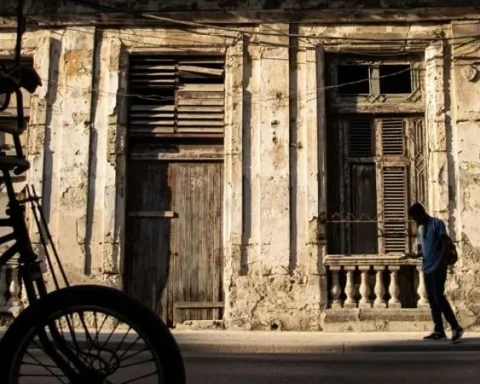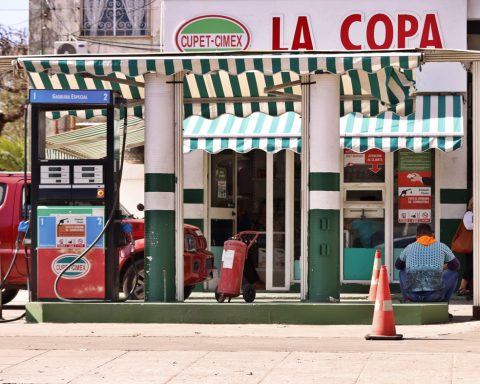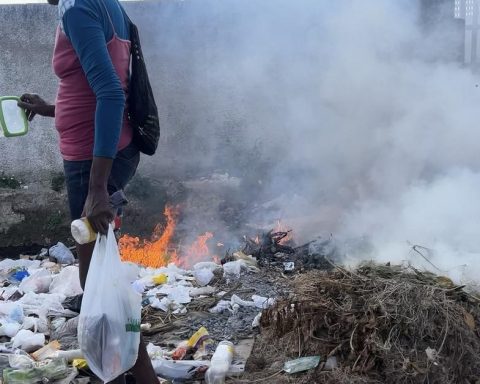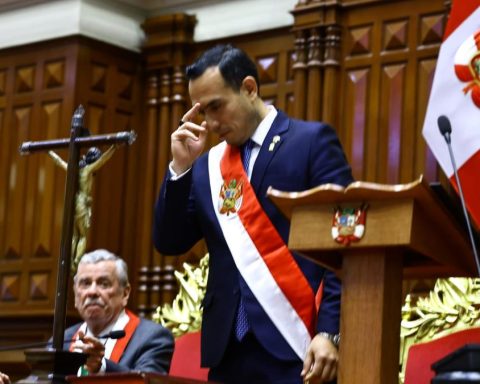HAVANA, Cuba.- On Wednesday of this week, the agitation and propaganda program Round Table, of the Cuban Television, It was dedicated to an appearance by the current Minister of Agriculture, Ydael Pérez Brito. Logically, the press, both the real one (the independent one) and the “little one” (the official one) have reviewed what was expressed on that occasion by the aforementioned gentleman.
I found the opening sentence of the report that this same digital newspaper dedicated to that event on Thursday very happy: “Inventory of misfortune: Cuban minister recognizes agricultural crisis.” Because, in effect, that’s what it was about: a confession (no matter that it was shameful and manipulative) of the terrible crisis in which the island’s agriculture is mired.
For even the most furious Castroites to recognize this sad reality, it is enough for us to cite some of the comparative statistics (from 4 years ago and now) that the senior official cited, which reflect the terrible decline suffered: Chickens (from 8 million to only 3); breeding sows (from 96 to 26 thousand, and the latter, he said, “are not in good condition”); eggs (from between 4 and 5 million per day to less than 200,000).
Another fact: Cuban agriculture needs “between 1,200,000 and 1,500,000 tons of feed per year”; But today, the minister clarified, “we do not exceed 200,000.” And I give one last figure: Cuba, a country that, thanks to its enormous sugar production capacity, was agricultural-industrial (but became, as a result of the clumsy policies of Castroism, one that was simply agricultural), it only has 440,000 producers in that sector. The defendant spoke of “offering more incentives for people to return to the countryside,” but did not say which ones.
In short, a ruinous picture that, given the magnitude of the negative aspects and the productive contraction, it is not unfair to describe as catastrophic. It could be assumed that, faced with this scenario in which things go from bad to worse, those responsible for this economic involution think about making substantial changes in Cuban agriculture. But no: what continues to predominate is the most reactionary immobility… as if everything were going swimmingly!
The minister does not talk about eliminating the monopoly Empresa de Acopios, which sometimes leaves some of the squalid crops to rot in the fields. crops and that it does not even pay the peasants on time the abusively low prices that the State itself arbitrarily sets. But it continues to consider the coercive measures imposed against usufructuaries as appropriate.
In fact, much of the limited time given to the program was dedicated by the minister to elaborating on the acts of persecution unleashed against the aforementioned producers, which, according to him, made it possible to detect “more than 100,000 irregularities.” As if it were a great act of generosity, he referred to the legalization of numerous cases of usufructuaries who had violated the limitations established to build a home in the land assigned.
That is to say, in principle an action that should be something as normal as drinking a glass of water is still prohibited: that the owner of the land can build a house on it. We are talking about something that, except in the cases of those who have received a property near their home, is essential in these times of terrible public transportation and unbridled increase in crimes committed against producers. agricultural.
In short: instead of imitating their Chinese “comrades,” Cuba’s communists continue to refuse to make serious changes in agriculture. As is known, in the Asian giant, the disastrous communes established by the genocidal Mao Dze-dong and his insane “Great Leap Forward” caused the death of scores of millions of human beings!
Upon coming to power, Deng Xiaoping changed the rules of the agrarian game: he recognized the property of individual farmers, imposed a moderate tax on them (10% of what they produced) and authorized them to freely dispose of that product. These simple measures put an end to the terrible famines and laid the foundations for China’s current flourishing (economically, of course; since we already know that, politically, the brutal communist dictatorship is maintained).
But, I insist, the mayimbes Castro’s leaders remain reluctant to do something similar in Cuba. As a result, the current “conjuncture” is dark, and the prospects for the immediate future (although such a thing seems impossible and also incredible) are even more gloomy.
But I must admit that, in this matter, I found the comment that the user “Fígaro” made to the information published on this matter here on CubaNet. The aforementioned gentleman, very correctly, states that the number of chickens or eggs “is not an issue that matters to the population.” With this, I think, he puts his finger on the sore spot.
Because in any normal country (in pre-revolutionary Cuba itself, without going any further), of course, when a city dweller wants to eat chicken, pork or eggs, the only thing that interests him is being able to buy them in the store closest to him! house at a reasonable price! These details of inputs, means of production, etc., are of interest only, if at all, to the farmers… and, for that, not to all of them, but to those specialized in the areas in question in each case.
But that’s how things go in Cuba. We are all informed about the details of the crisis in agricultural production, but that does not prevent things from going from bad to worse; nor that the hunger of today ceases to threaten to transform into the terrible famine of tomorrow. May God have mercy on our little island and its unfortunate inhabitants!

















